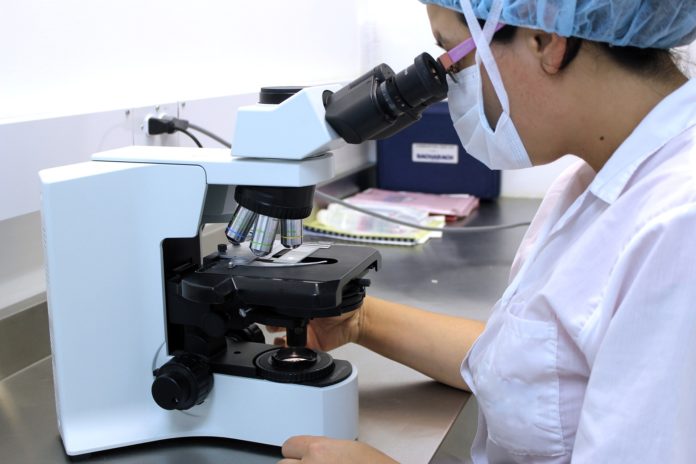Researchers, including those from Harvard have zeroed in upon a chemical that can interfere with the propagation of the Tuberculosis bacterium, raising interesting prospects for future TB treatments as the organism develops resistance to commonly used antibiotics.
The findings are important for India because it has the largest TB burden in the world, the bacterial infection kills an estimated 480,000 Indians every year
In search of new strategies against life-threatening tuberculosis infections, a team from the Technical University of Munich (TUM), Harvard University and Texas A&M have discovered a substance that interferes with the mycomembrane formation of the bacterium. It is effective even in low concentrations and when combined with known antibiotics its effectiveness is improved by up to 100-fold. The mycomembrane of the tuberculosis pathogen Mycobacterium tuberculosis consists of a lipid double layer that encapsulates the cell wall, forming an exterior barrier.
The findings are important for India because it has the largest TB burden in the world, the bacterial infection kills an estimated 480,000 Indians every year and more than 1,400 every day, a large fraction of those patients are infected by a bacteria that has some degree of resistance to standard TB drugs. India had the second highest total number of estimated MDR TB cases (99,000) in 2008, after China (100,000 cases)
The TB pathogen itself makes the life of doctors difficult: its dense mycomembrane hampers the effect of many medications. The team has discovered a substance that perturbs the formation of this membrane significantly.
Using enzyme assays and mass spectroscopy investigations, Dr. Johannes Lehmann, a researcher at the Chair of Organic Chemistry II at TU Munich, demonstrated during his doctoral work that the new inhibitor named EZ120 blocks especially the enzymes Pks13 and Ag85, which play a key role in the development of mycomembranes.
EZ120 is effective even in low doses, easily passes the mycomembrane and exhibits only low toxicity to human cells. The combined application of this substance with known antibiotics showed a synergistic effect leading to significantly increased effectiveness.”Vancomycin, a common antibiotic, and EZ120 work together very well.When used together, the dose can be reduced over 100-fold,” says Prof. Sieber, who heads the Chair of Organic Chemistry II. ”
The research was funded by the German Research Foundation (SFB 749 and Cluster of Excellence “Center for Integrated Protein Science”), the National Institutes of Health (USA) and the German National Academic Foundation (Studienstiftung des Deutschen Volkes). Researchers from the Harvard T.H. Chan School of Public Health and Texas A & M University (College Station, USA) also participated in the research.


